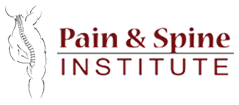Cervical Disc Herniation
Cervical discs are the cushioning tissues that are positioned between the vertebrae in the upper back and neck. A cervical disc is considered to have herniation when the inner disc material either ruptures or pushes past the outer cervical disc wall. This is typically caused by excessive stress on the discs, which could be due to lifting heavy items, engaging in repetitive motions, or the result of an injury. However, it can occur spontaneously as well.
Sometimes, cervical disc herniation isn’t noticeable. However, once it pushes into the spinal canal or nerve roots, it often results in numbness, significant pain, and even problems with muscle strength. Many people first pick up on something being wrong when they notice pain that radiates down their arm or numbness and tingling in their fingertips.
Cervical disc herniation is most often seen in individuals between 30 and 50 years old. It is one of the most common conditions of the spine that we treat Chicago pain center.. If you are noticing signs that you might have cervical disc herniation in Chicago, schedule your consultation.

Symptoms of Cervical Disc Herniation
See a doctor about disk herniation in Chicago if you notice any of the following symptoms:
Upper arm weakness, either in the upper front or back of the arm
Weakness in the wrist extensor muscles
Weakness in the finger extensor muscles
Reduced tensile strength
Numbness and tingling in the arms, wrists, and hands
Shoulder pain
While these are the most common symptoms of cervical disc herniation in Chicago, you may experience others. Because a herniated cervical disc can pinch the nerves, a wide variety of nervous system symptoms can originate from this.

Diagnosing Cervical Disc Herniation in Chicago
A diagnosis should not be made based on symptoms alone. Once your doctor determines that signs are pointing towards cervical disc herniation, they should order diagnostics that will either confirm or eliminate this as a possibility. These include:
An MRI Scan
MRI scans are considered the gold standard for diagnosing a herniated cervical disc. This scan is best able to see if a disc is pinching the nerve roots.
- A CT Scan With Myelogram
CT scans with myelogram dye can be more sensitive than an MRI, allowing us to pick up on very subtle pinching of the nerve. If an MRI does not reveal an issue, we usually order a CT scan next.
EMG
In rare cases, we might use electromyography to aid in our diagnosis. This stimulates specific nerves, allowing us to see which muscles are being impacted by a pinched nerve. Using the process of elimination, we can then determine if cervical disc herniation is the source of the problem.
If you suspect you have cervical disc herniation in Chicago, do not wait for your symptoms to worsen. Schedule your appointment with the Pain & Spine Institute today.
FAQs About Cervical Disc Herniation in Chicago
You shouldn’t do anything that could stress the neck and upper back. This means avoiding high-impact exercises, lifting heavy materials, running and jogging, and playing certain sports like basketball. If your job involves heavy lifting, you will need accommodations until your disc herniation is resolved.
A herniated cervical disc is considered an emergency if you are experiencing muscle weakness as a result of it or if your symptoms are rapidly getting worse—for example, getting progressively worse every 1-3 hours.
Yes! In fact, certain exercises can help improve cervical disc herniation. However, the key is to do the proper exercises and avoid those that stress the cervical discs. We can help you determine which types of exercise are best and which need to be off limits.
This varies between individuals. Typically, symptoms present in the arms and can include pain, numbness, and tingling. In some cases, a person may not have any sensations as a result of a minor disc herniation.
